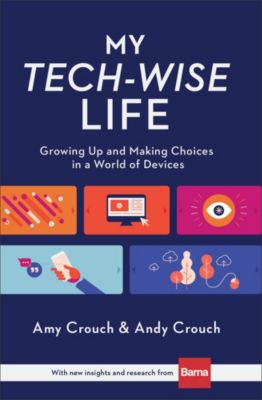
By Aaron Earls
Before pastors and church leaders apply biblical principles to their congregational life, they first must learn and live out those ideals in their personal life.
And according to Christian tech experts, the best place to start is the beginning. Just as humanity’s relationship with technology goes back to creation, so do the principles that should guide our usage of it.
God placed Adam and Eve in the garden and commanded them to “work it and watch over it” (Genesis 2:15). In doing this, they would have to develop tools. But as God was placing humanity in a situation that required technology, He was also giving them the central concept they needed to develop and use tech. And when Jesus arrived, He fleshed out additional truths that guide our relationship with technology.
1. Recognize the image of God.
“Humans are created in the image of God (Genesis 1:27) and called to worship with ‘heart, soul, mind, and strength’ (Mark 12:30),” says Amy Crouch, coauthor of My Tech-Wise Life. “This core truth should guide all our use of devices.” For Crouch, that leads to two principles.
We need to be loving our neighbors (and ourselves) as whole persons, but tech can easily flatten fellow human beings into objects of envy, disdain, and hatred. — Amy Crouch Click To Tweet“First, our use of devices should affirm the image of God in ourselves and in our communities,” she says. “We need to be loving our neighbors (and ourselves) as whole persons, but tech can easily flatten fellow human beings into objects of envy, disdain, and hatred—or its promises of efficiency can lead to our treating our neighbors as mere inconveniences.”
Second, Crouch says our call to worship God with our entire created self requires the proper use of our bodies. “Devices make it all too easy to live disembodied lives; hours of entertainment and hours of work can fit into our back pockets,” she says. “But it’s essential for us to be spending time with others in person and engaging with the world in a physical way.”
Devices make it all too easy to live disembodied lives; but it’s essential for us to be spending time with others in person and engaging with the world in a physical way. — Amy Crouch Click To Tweet2. Look through the lens of love.
To guide her social media use, Hunter Beless, founder and executive director of Journeywomen, points to Jesus’ summation of the law in Matthew 22. “The biblical principle to love God and to also love my neighbor enables me to examine my personal practices by encouraging me to ask, ‘Am I loving God first? And am I loving my neighbor (especially my littlest neighbors who live in the bedroom next door)?’ If the answer is no, I desperately need to reevaluate,” she said.
The biblical principle encourages me to ask, "Am I loving God first? And am I loving my neighbor?" If the answer is no, I desperately need to reevaluate. — Hunter Beless Click To TweetBeless also pointed to four biblical questions she uses to take an honest inventory of her life and how she is using social media and technology:
- Am I seeking to glorify God and point others to Him? (Psalm 115:1)
- Am I glorifying His name or my own? (Colossians 3:17, Psalm 34:3)
- Does this send me running to the Lord or running away from Him? (Mark 12:30)
- Am I building my kingdom or the kingdom of God? (2 Corinthians 5:20)
As pastors and church leaders better understand their own relationship with technology, they can begin to analyze the intertwining of tech with their church.
3. Understand the struggles of others.
Despite the idea that we say we use tech to stay connected and more efficient in our work, Crouch says we report that tech makes it harder to get work done, reduces our attention spans, and makes personal conversations more difficult, especially for the always-connected younger generations.
Don’t underestimate how much people are struggling just to set aside time for personal devotions and Scripture reading. Technology has the ability to disrupt our disciplines of spiritual formation. — Amy Crouch Click To Tweet“Don’t underestimate how much people are struggling just to set aside time for personal devotions and Scripture reading,” she says. “Overall, technology has the ability to disrupt our disciplines of spiritual formation.”
While we may see such difficulties in our own lives, Crouch says technology, particularly social media, often fosters discontentment by giving us only the “highlight reel” of everyone else. “We still struggle with comparing our worst days to everyone else’s best days,” she says.
Young adults have always needed the message of Christ’s unconditional love—but now, with images of a seemingly perfect life constantly before our eyes, envy is stronger than ever. — Amy Crouch Click To Tweet“Young adults have always needed the message of Christ’s unconditional love,” says Crouch, “but now, with images of a seemingly perfect life constantly before our eyes, envy is stronger than ever.”

My Tech-Wise Life: Growing Up and Making Choices in a World of Devices
Amy Crouch & Andy Crouch
FIND OUT MORE







